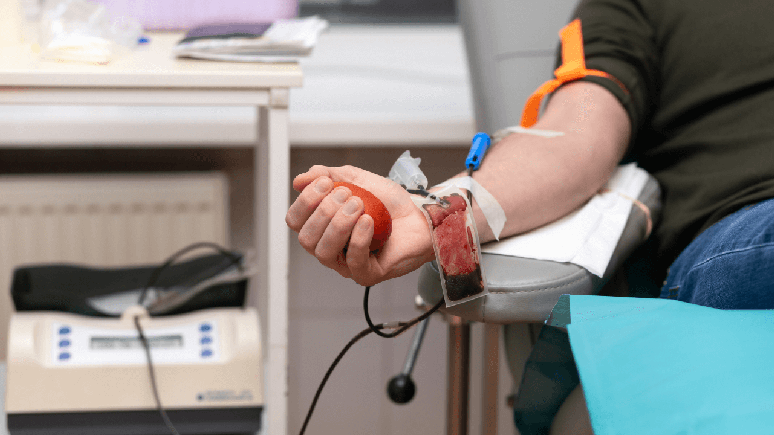Blood donation is a commitment of solidarity for public health. Find out what are the care and criteria to be donated.
Blood donation is a fundamental regular action to save human lives. Therefore, the countryside try to encourage the collective thought and the commitment of solidarity for public health. This is because it is necessary to keep the blood supplies at correct levels, as there is no substitute for the component.
According to the Ministry of Health, only 1.5% of the population of Brazil periodically give blood. Therefore, blood banks operate very often on the edge. A survey conducted by Abbott, a global health company, revealed that in 2021 about 48% of Brazilians aged between 16 and 64 years are not regular donors. This reality is alarming and strengthens the importance of sensitizing the act.
How the blood donation occurs
In case of total blood collection, 450 ml of blood Donors, a process that lasts on average 12 minutes. The collected blood undergoes a centrifugation, responsible for the separation of its main components, divided into red blood cells, platelets and plasma. The donation is free and can help to save up to four lives.
While using red blood cells in acute anemia and bleeding treatments, platelets help in anticancer treatments and hematological diseases. Finally, plasma can use in patients with coagulation disorders. Therefore, in addition to conventional donations, the elements can be intended for specific cases.
Criteria to give blood
- Age group: 16 and 69 years old, so that children under the age of 18 have a formal consent of the legal guardian and people aged between 60 and 69 can only give if they are already made before 60 years
- Document: Before the donation it is necessary to present a photographic identification issued by an official organ
- Weight: The minimum donation mass is 50 kg
- Sleep: Sleeping at least 6 hours in the last 24 hours is fundamental
- Food: The indication is to feed well and avoid the consumption of foods rich in fat at least 3 hours before the donation.
According to data from the Ministry of Health, until September 2,516,237 donations take place in the country. Currently, the country has 32 state blood centers, as well as regional and municipal emotained services. These are responsible for the collection, processing, memorization and distribution of blood and its components.
Post-dentation of blood assistance
- Remains in the donation area for at least 15 minutes
- Ingest many fluids within 24 hours of donation
- Do not ingest alcoholic beverages within 24 hours
- Avoid exaggerated physical efforts within 12 hours of donation
- Do not drive heavy or collective vehicles
- In case of first donation, do not drive the motorcycles
Interval between donations
Although the donation is a regular action, there is a necessary interval between donations. TO womenThe action can be performed up to three times a year, with a minimum interval of 90 days between donations. Already the men can donate up to four times in a period of 12 months, respecting the minimum interval of 60 days between donations.
Source: Terra
Ben Stock is a lifestyle journalist and author at Gossipify. He writes about topics such as health, wellness, travel, food and home decor. He provides practical advice and inspiration to improve well-being, keeps readers up to date with latest lifestyle news and trends, known for his engaging writing style, in-depth analysis and unique perspectives.







-vf6huy5jc37c.jpg)
